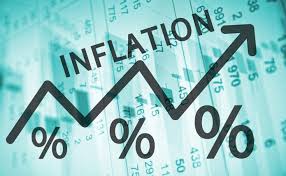
Audio By Carbonatix
The International Monetary Fund (IMF) has lowered Ghana’s average inflation forecast for 2023 to 42.2% from the earlier 45.4%.
It is also forecasting an end-year inflation of 31.3%
According to its 2023 World Economic Outlook (WEO), this will however be among the highest in Sub-Saharan Africa.
In 2022, Ghana’s average inflation was estimated at 31.9% whilst the end-of-year inflation stood at 54.1%
The report stated that the near-term inflation expectations remain elevated and above target, as inflation rates may contribute to more persistent wage and price pressures.
This would complicate the task of monetary policy in restoring price stability.
It added that the ample stock of excess household savings in some economies could slow the effects of monetary policy tightening on inflation.
Continuing, the WEO said “Financial markets have adjusted upward their expectations in regard to monetary policy tightening in recent months, but new upside inflation surprises would force a monetary policy reassessment and could trigger a sudden rise in interest rate expectations and falling asset prices—as happened in March [2023]. Movements such as these could further tighten financial conditions and stress banks and nonbank financial institutions whose balance sheets remain vulnerable to interest rate risk, especially those highly exposed to commercial real estate. Contagion effects are possible”.
“A flight to safety, with an attendant appreciation of reserve currencies, would trigger negative ripple effects for global trade and growth and raise inflation in emerging market and developing economies, especially those highly dependent on imports of food and fuel”, it added.
Ghana’s inflation slowdown in August 2023
Ghana’s inflation slowed down in two months to 40.1 percent in August following an easing in food inflation.
According to data from the Ghana Statistical Service, Food inflation witnessed a decrease to 51.9% in August 2023, from the 55.0% the previous month.
Non-Food Inflation also dropped by 2.9% to 30.9% in August 2023.
For the first time in the year, inflation for imported products recorded a rate lower than locally produced items. Whilst inflation for for locally produced items was 42.4%, inflation for imported items was 36.2%.
Latest Stories
-
Gov’t to extradite foreign national who secretly filmed Ghanaian women to face prosecution – Sam George
42 minutes -
U20 WWC: Black Princesses to play Uganda in final round of qualifiers
48 minutes -
‘I will never forget you’ – Kennedy Agyapong thanks supporters, NPP delegates after primaries
3 hours -
Woman found dead in boyfriend’s room at Somanya
4 hours -
Woman feared dead after being swept away in Nima drain amid heavy rain
4 hours -
Court grants GH¢10k bail to trader who posed as soldier at 37 Military Hospital
4 hours -
Tano North MP secures funding to reconstruct decades-old Yamfo Market
5 hours -
Haruna Iddrisu discharged after road traffic accident
5 hours -
Kenyans drop flowers for Valentine’s bouquets of cash. Not everyone is impressed
5 hours -
Human trafficking and cyber fraud syndicate busted at Pokuase
5 hours -
Photos: First Lady attends African First Ladies for Development meeting in Ethiopia
5 hours -
2026 U20 WWCQ: Black Princesses beat South Africa to make final round
6 hours -
World Para Athletics: UAE Ambassador applauds Ghana for medal-winning feat
7 hours -
Photos: Ghana’s path to AU Chairmanship begins with Vice Chair election
7 hours -
Chinese business leader Xu Ningquan champions lawful investment and deeper Ghana–China trade ties
7 hours

